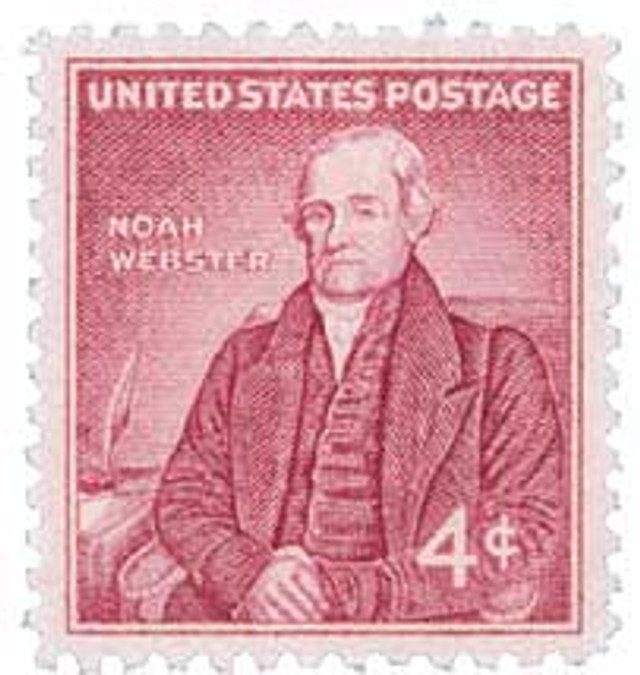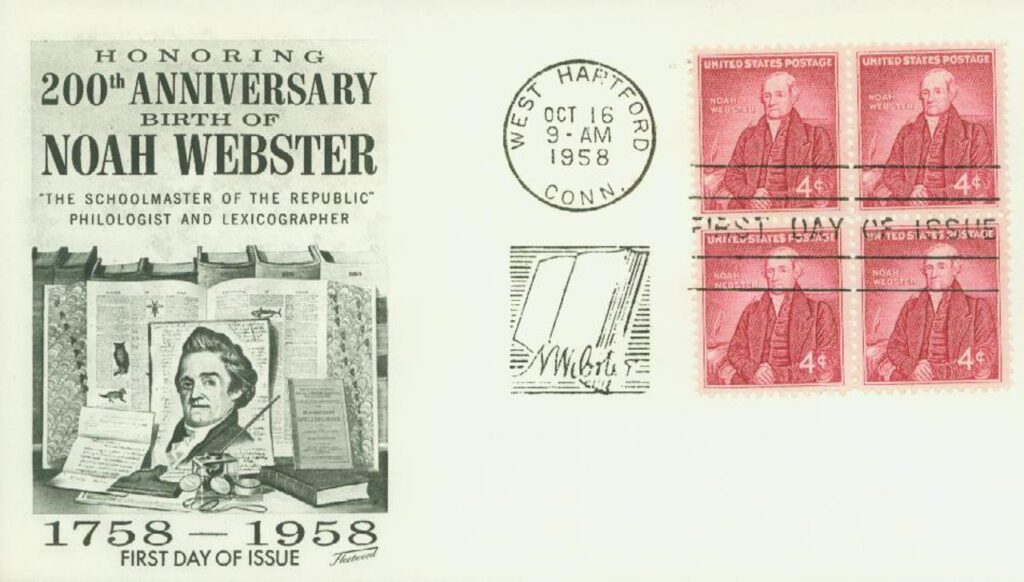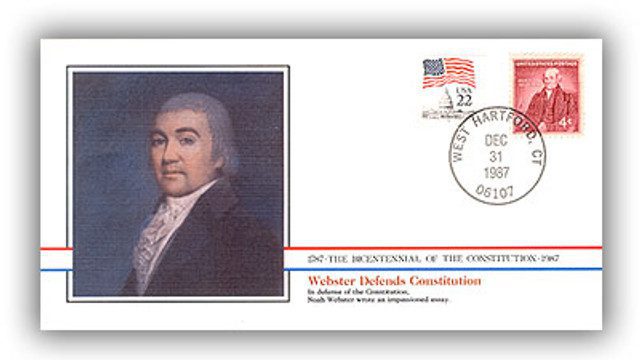On May 28, 1843, author and lexicographer Noah Webster died in New Haven, Connecticut. Webster developed several important textbooks as well as the dictionary that standardized the American spelling of many words.
Noah Webster Jr. was born on October 16, 1758, in Hartford, Connecticut. He came from a family of governors, though his father was a farmer, captain in the town militia, and founder of the local book society.
When he was young, Webster’s mother taught him and his siblings spelling, math, and music. He then attended a one-room primary school where they focused on religion. His negative experiences there would inspire him to work to improve the educations of future generations.
Webster went on to attend Yale College and serve with the Connecticut Militia during the Revolutionary War. After graduating in 1778, he briefly taught before studying law under future US Supreme Court Justice Oliver Ellsworth. After passing the bar he couldn’t find work as a lawyer because the war was still raging, so he opened a small private school in western Connecticut. He eventually closed the school and turned to writing. Webster found new success as an author, writing popular articles in favor of the revolution and separation from England.
Webster then opened another private school where he got funding to write spelling and grammar books for elementary schools. Meanwhile, he also became a vocal supporter of the new Constitution, publishing a pamphlet titled, “An Examination into the Leading Principles of the Federal Constitution Proposed by the Late Convention Held at Philadelphia.” In 1793 Alexander Hamilton invited him to New York City to edit the Federalist Party newspaper. There, Webster founded New York’s first daily newspaper, American Minerva, for which he wrote about 20 volumes worth of articles and editorials. He also published a semi-weekly paper.
Over the years Webster became a noted author, producing textbooks, political essays, and a report on infectious diseases. He was also a leading proponent of the Copyright Act of 1831.
Webster was specifically noted for his “Blue-Backed Speller,” known then as The First Part of the Grammatical Institute of the English Language. It was the most popular American book of its time and helped to inspire spelling bee contests. Over 385 editions were released in his lifetime. In his speller, Webster changed the spellings to more phonetic ones and changed the ‘re’ to ‘er’ in words such as center. His goal was to move away from the British form of spelling to a new American style.
Webster produced his first dictionary in 1806. It wasn’t the first American dictionary – Samuel Johnson Jr. published one in 1798 – but Webster’s work had a much greater impact. It helped standardize American pronunciation. Although he thought of it as a preliminary work, it was the finest dictionary of its time. Over the next 20 years, he worked to expand his dictionary. In 1828, he published his American Dictionary of the English Language. The two-volume dictionary had 70,000 entries that included literary words plus technical terms from the arts and sciences.
Webster’s dictionary sold poorly – just 2,500 copies at the time. He worked for several years on a second edition, published in 1840. Three years later, as he was revising an appendix to the second edition, he died on May 28, 1843. George and Charles Merriam acquired the rights to his dictionary that same year, leading to the recognized Merriam-Webster dictionaries of later years. Today, Webster’s Dictionary is the standard resource material for word definitions and reference.
| FREE printable This Day in History album pages Download a PDF of today’s article. Get a binder or other supplies to create your This Day in History album. |
Discover what else happened on This Day in History.
Do you know who holds the Guinness World Record as the most honored entertainer in history? Check back tomorrow to find out!





